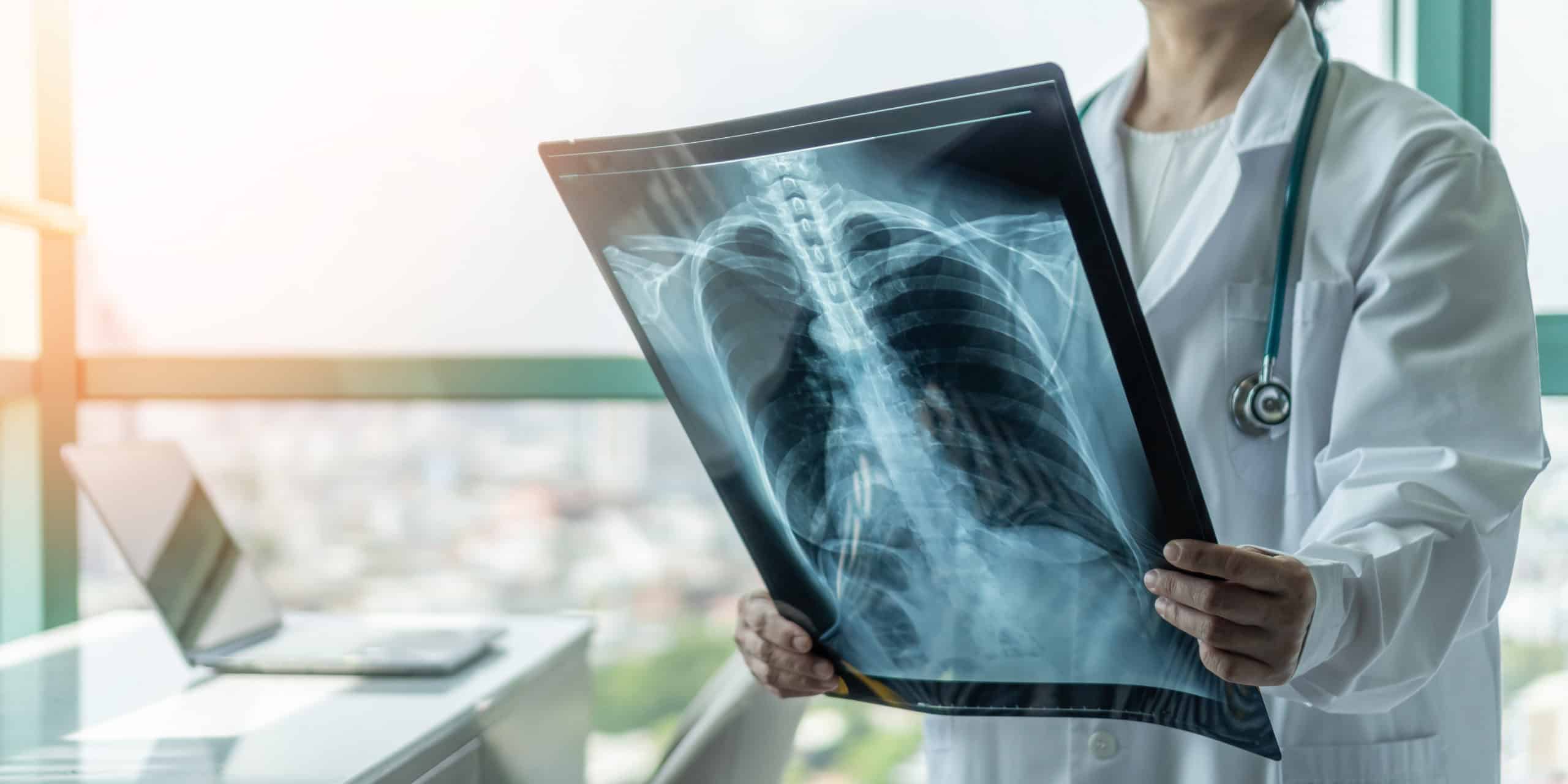If you’re sick or injured, seeking care in an emergency room may be the best thing for you to do. If you visit an Ally Medical Emergency Room, you will see a Board Certified Emergency Physician. One of the most important tools in helping to diagnose your injury or illness is our radiology testing equipment. This equipment includes a variety of radiology exams, including X-rays, Computerized Tomography (CT) scans, and Ultrasound. While we do not have an MRI machine at any of our locations, we can arrange for transfer if it is emergently needed.
Many patients may be unfamiliar with radiology tests, so we have compiled instructions on what test works best for different situations.
X-ray
X-rays are often our first line of imaging because they provide the least amount of radiation to a patient and are very quick. Radiographs (X-rays) use ionizing radiation that travels from the imaging equipment through the patient to the imaging detector (film).
- Uses: Detect fractures (broken bones), dislocations (bones not in the right place), respiratory illnesses (pneumonia, collapsed lung, etc.), and some abdominal problems (obstructions, foreign bodies, etc.).
- Limitations: Soft tissue injuries like a tendon or muscle injury will not show up on X-rays. Some fractures are very subtle and can be missed on plain X-rays.
What to expect:
- The Radiologic Technologist will help position the body part being imaged.
- Typically does not hurt, though imaging an injured body part may cause discomfort. Pain medication can be provided to make the imaging more comfortable.
- Most X-rays are typically done at the bedside, but some may require a special room. Tests take about 2-5 minutes to complete.
CT Scan
Computerized Tomography (CT or CAT scans) utilizes ionizing radiation and has a higher rate of exposure than plain X-rays. They are only used if the patient’s condition benefits from a diagnosis versus the risk of radiation.
- Uses: Diagnose organ injuries (like stroke, appendicitis, diverticulitis), fractures not detected on X-rays, and complex fractures. Quickly diagnose traumatic injuries from accidents.
- Contrast Medium: Some studies require a contrast medium to fill up solid organs or vessels. Blood tests may be needed to ensure your kidneys can filter the contrast.
What to expect:
- The patient is taken to a special, lead-lined room and placed on the machine.
- Typically does not hurt, though imaging an injured body part may cause discomfort. The technologist will try to keep you comfortable.
- Scans take 2-5 minutes per body part. The use of contrast medium may make you feel warm or cause other symptoms.
Ultrasound (US)
Ultrasounds use low-frequency sound waves to produce imaging and emit NO radiation during the scan.
- Uses: Diagnose inflammation, swelling, fluid collections (cysts, tumors, abscesses), and monitor fetal growth or complications. Commonly used for gallbladder disease, pelvic symptoms, or artery/vein concerns.
- Limitations: Sound waves do not pass through bone or air well.
What to expect:
- The technologist will bring the machine to the patient and darken the room.
- Typically does not hurt, though imaging an injured body part may cause discomfort.
- Scans can take 15-45 minutes, depending on the number of areas being scanned.
MRI
Magnetic Resonance Imaging uses powerful magnets that pass radio waves through the body to produce an image with NO radiation. MRIs are usually not performed in an ER setting as they are not considered urgent exams.
- Uses: Image soft tissues such as brains, tendons, ligaments, muscles, cartilage, and the spinal cord. Best for detailed contrast between bones and soft tissues.
- Limitations: Patients with certain implants (like a pacemaker) cannot have an MRI due to the magnets.
What to expect:
- MRI exams are the longest type of exam, some lasting beyond an hour in a small, confined space.
At Ally Medical Emergency Rooms, our team is dedicated to providing fast and reliable diagnoses through comprehensive radiology testing. If you need immediate medical attention or have questions about our radiology services, visit one of our locations for expert care.



